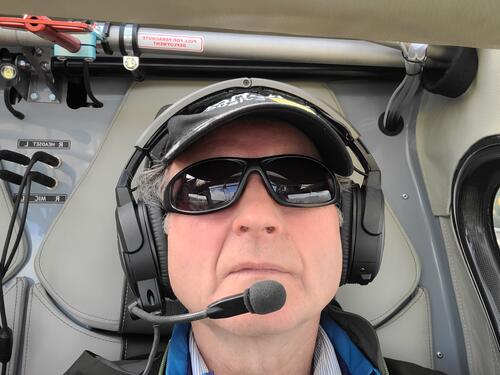SEED Faculty, Paul Parker, receives sustainable aviation society award
This article was originally published on the Faculty of Environment's website.
The International Sustainable Aviation and Energy Research Society (SARES) has given the 2022 Science Award to Paul Parker, professor at the School of Environment, Enterprise and Development (SEED) and Geography and Environmental Management (GEM) for his outstanding research and invaluable contributions to sustainable aviation globally.
SARES gives six important scientific awards every year. The awards are given in four categories (Lifetime Achievement Award, Science Award, Young Scientist Award, and Young Researcher Award) to scientists and researchers who work on Sustainable Aviation and two more additional awards (Gratitude Award and a Company Award).

Parker is a sustainability researcher with a passion for solar powered flight. As a professor in the Faculty of Environment SEED and GEM, he has pursued both passions: sustainability and aviation. At 18, he obtained his private pilot license. He understood the teenage dream to fly and was the Chair of Geography when the Geography and Aviation program was created in 2007 with Waterloo Wellington Flight Centre (WWFC) as a partner.
But Parker did not like using an engine to fly so he turned to gliding where he could soar for hundreds of kilometers using nature’s solar power to create thermals. He was a gliding instructor in Australia, England and Canada where he also won the 2018 National Championship and was a member of Canada’s national 2019 PanAm team.
As an energy system researcher, he focused on improved efficiency and renewable sources of energy. Parker and his team have surveyed the different stakeholder groups and found a strong desire to try electric flight among students, instructors and manager/owners.
Parker’s next project is to compare the performance of an electric plane to conventional ones for flight training under Canadian conditions.
He received the award with other recipients on August 5, 2022 at the online ceremony of the International Symposium on Sustainable Aviation (ISSA) 2022.